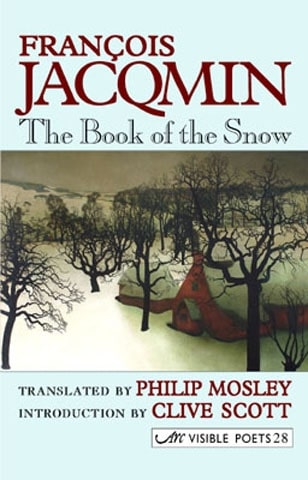
François Jacqmin, acknowledged as one of the foremost francophone Belgian poets of the latter half of the twentieth century, was born in 1929 in Horion-Hozémont in the province of Liège. In 1940 his family fled to England to escape the German occupation. He returned to Belgium in 1948 and rediscovered his native language and literature. His three major volumes of poetry are Les Saisons (1979), Le Domino gris (1984), and Le Livre de la neige (1990). Eléments de géométrie, a volume of prose poems written a few years before his death in 1992, was published in 2005.

Judges’ Citation
Francois Jacqmin’s The Book of the Snow displays a poetry which is pure, abstract and uncompromising, but also deeply felt, utterly precise, attuned to the complexity of the world.
François Jacqmin’s The Book of the Snow displays a poetry which is pure, abstract and uncompromising, but also deeply felt, utterly precise, attuned to the complexity of the world. It takes the language of philosophy, of speculation and meditation, and adds to it a rich calm cadence; every image has a real and exact value. The short poems are surrounded with terms which seem to gesture towards saying something which is true and towards something else which is beyond mere truth. The central paradox of Jacqmin’s poetry is the human mind’s need to speak played against a profound suspicion of language. The unmarked snowy fields, the mind before thought, the blank silence that underlies all human expression – these are the slates on which these poems form and disintegrate. The poems in Philip Mosley’s translation are thus filled with a mysterious beauty; they have a sort of shimmering quality. They are poems filled with both the world’s weather and a weather which belongs to language purely and exquisitely shaped and sculpted.
Selected poems
by François Jacqmin
It is midnight.
The coal of the hour burns out in white
embers.
Remains of souls flicker
in the grate.
The shadows
hurl themselves at the walls like torn
birds of prey.
We remain alone,
with that fire which tries to rekindle itself.
Copyright © Translation Philip Mosley 2010
from The Book of Snow
the French written by François Jacqmin
Gentlefolk stay at home.
Travel
reveals what is lamentable in the soul.
To go elsewhere is to
unstitch
the gather of innocence which innocence weaves
around our place.
It is the reason why I set great store on staying
at home amid my own things:
they are my common heartrending absolute.
Copyright © 2010 by Philip Mosley, translated from the French written by François Jacqmin, The Book of the Snow, Arc Publications
From The Book of the Snow
the French written by François Jacqmin